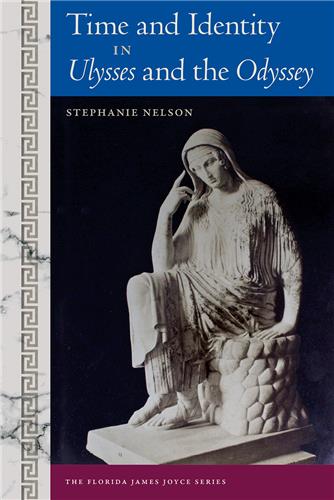James Joyce's "Fraudstuff"
Kimberly J. Devlin
Foreword by Zack Bowen, Series Editor- Series: The Florida James Joyce Series
In James Joyce's "Fraudstuff," Kimberly Devlin considers Stephen Hero in illuminating juxtaposition to the developing artistic subject portrayed in Portrait and Ulysses. By tracing the concepts of "fraudulence" and "inauthenticity" in Joyce, Devlin reveals his increasingly sophisticated exploration of modern identity from Stephen Hero to Finnegans Wake.
Devlin examines Joyce's continual rethinking of what it means to have a "self," of the acting that passes as being. She demonstrates how Joyce explored the various ways identity is constructed, sustained, subverted, and dissolved. Whereas Stephen Hero presents a narrator who feels authentic compared to the fraudulence all around him, the Stephen of Portrait becomes aware of how his own identity is a pastiche of borrowed narratives and his actions a series of posturings. Moving deftly from Stephen Hero, to Portrait, to Ulysses and Finnegans Wake, Devlin traces Joyce's increasing interest in and experimentation with the theatrical props that support identity, from his early concern with moments of epiphanic truth and authentic insight to an obsessive celebration of selfhood as imposture and fraud—and as an ultimately unknowable entity.
Building on studies of the performative dimension of selfhood, Devlin demonstrates that Joyce grew increasingly skeptical about locating a core of being, and she explores his "Fraudstuff" in an array of forms: mimetic identifications, female masquerade, male parade, trans-gender impersonations, verbal mimicry, and police fantasies that induce elaborate posturings. In a refreshingly clear application of Lacanian theory, she also shows how modern identity, for Joyce, is based on the imagined gaze of the "Other." Her sophisticated, nonreductive application of contemporary psychoanalytic theory to Joyce's preoccupation with identity will challenge established Joyce scholars and will appeal broadly to scholars and students of literary modernism.
Kimberly J. Devlin is professor of English at the University of California, Riverside.
No Sample Chapter Available
"Scholars and students can learn much from Devlin's careful explications and subsequent applications of Lacan's theories. There are also numerous fresh reading of Joyce's texts in this study."
--English Literature in Transition 1880-1920
"Rich and helpful."
--James Joyce Literary Supplement
" Nothing less than a mastery of James Joyce and Jacques Lacan makes it possible for Kimberly J. Devlin to offer this virtuoso reading of Joyce's oeuvre from Stephen Hero to Finnegans Wake in relation to psychoanalytic themes. Nor is 'mastery' hyperbole...While Devlin's ideal readers are scholars working at the intersection of Joyce and Lacan, the book will also interest others, thanks to its focus on the ways Joyce and Lacan speak to fundamental questions of human nature and its exemplary use of psychoanalytic theory."
--James Joyce Quarterly
"Devlin's hypothesis appears immediately convincing; all the more so when she appies it to that most performative of all identity poses, gender."
--Modernism/Modernity
"Fraudstuff brilliantly delineates the subtleties and at times inconsistencies of Joyce's oeuvre, doing so in a style at once rigorous and approachable."
--Irish Studies Review












